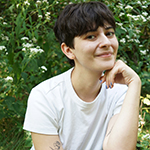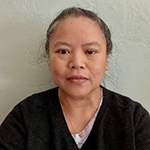Heaven is a Bore
A man wakes up in the infernal city of Tartarus at the foot of a steep hill. Before him stands a massive, misshapen boulder. Upon it is a note: “Once you roll this boulder to the top of this hill, you will be free.” Today, he thinks, today is the day I reach the top.
It is 2023. The year we attempted a tentative return to normalcy. The year society poked its collective head out of the bunker, surveyed the damage, and asked, “Is it safe to come up now?” The year a guy in Saginaw, Michigan bought a new Chevy right off the lot, drove it to and from the Rally’s on Bay Road, and sold it back to the dealer for double the sticker price. The year a relief pitcher won the “Comeback Player of the Year” award for surviving Stage 4 Non-Hodgkin Lymphoma, making five subpar appearances, and promptly tearing his UCL. The year four people with too much money (and one unfortunate child) crammed themselves into a ramshackle submarine and disappeared 12,500 feet under the sea, and we all sat glued to our televisions, counting down how much oxygen they had left, until one day, when someone from the Coast Guard got on the air and announced they’d all exploded several days ago. The year of fucked up internal clocks. The year a woman said, “Remember? At Nina’s birthday party last month?” and someone else replied, “Nina died two years ago.” The year I moved from Milwaukee to Philadelphia to work a job in D.C., and everyone agreed that made perfect sense.
It is 2023, and we are all in two places at once. We are at work. We are also in our bedrooms. We used to separate our bedroom and professional lives. Now they are blended. We run the internal audit for a Fortune 500 company in pajama bottoms. We work on the same beds we sleep in. Not all of us. Homelessness is up 12%. But the President has a chart that proves this is fine. The chart says, “You are happy. This is the best you’ve ever felt.” I printed this chart out and gave it to a beggar on my block. He did not look happy. He did not look the best he’d ever felt.
Dear Mr. Ruprecht,
Thank you for sending us “Heaven is a Bore.” It is unflinching in its brilliance and wit. It pulls no punches and lands every one. It transcends the physical, synthesizes the mental, and illuminates the seldom-explored, shadowy recesses of the human spirit. It is everything we’ve ever wanted in a short story. Unfortunately, it is not a good fit for us at this time.
Sincerely,
Gomer Codswallop
Editor-in-Chief
The Paris Review
I eat the same salad every day. One bag pre-washed Butter Lettuce. One bag pre-washed Spring Mix. 100 grams of pulled rotisserie chicken. 130 grams of baked sweet potatoes. One hardboiled egg, diced. Fifteen grape tomatoes. 20 slices of julienned red onion. Ground salt and pepper. 75 grams of Bolthouse Farms honey mustard yogurt dressing. Lettuce goes in first. Then egg. Then sweet potatoes. Then tomatoes. Then onions. Then chicken. Then salt and pepper. Then dressing. Once, someone saw me make it and asked if I had an eating disorder. “No,” I said. “It’s not just for eating.”
The doorman in my apartment complex is reading Finnegan’s Wake and has been for the last eight months. This is his fourth time through. He hates it. But he won’t stop reading until he understands why.
“It’s driving me insane, this book,” he tells me one night. He looks all around and then whispers, “Have you ever had the urge to kill the President?”
“Every day,” I say.
Rivers of sweat course down the man’s face and run off his chin. He’s nearly at the top. He pauses, braced against the boulder, and ponders all the wonders that await him on the other side of this hill. Once he gets there, his life truly begins. He’ll have time to learn foreign languages and fuck women of repute and sample every flavor of wine and write that novel he’s been meaning to start. He grins, and as he does, the boulder slips out of his grasp and rolls all the way back down the hill.
An Israeli Jew and a Palestinian Muslim meet each other in Heaven, which resembles Philadelphia in all relevant respects, except there are fewer Eagles jerseys and, inconceivably, twice as many Dunkin’ Donuts. Both arrived about three months ago, and since then, neither has wanted for anything. The Jew’s achy knee hasn’t bothered him once. The Muslim’s peanut allergy has abated. Each man is having a perfect hair day, as usual.
“So,” the Jew clears his throat and sticks his hands in his pockets. “Is this everything you hoped for?”
The Muslim scratches the nape of his neck. “No,” he says at length. “It’s…wrong. There’s supposed to be luscious gardens and scores of houris and four rivers of water, milk, honey, and wine that stretch over and beyond the reaches of the Earth. Choirs of angels are supposed to be singing. There should be garments of silk and brocade. I mean, I hate to complain. It’s a wonderful place. But it’s not what I was promised.” He takes a deep breath and forces a smile. “Sorry. I really shouldn’t… It is wonderful.” He looks around, as if trying to convince himself. “What about you? Is it all you hoped?”
“No,” the Jew agrees. “I didn’t want you to be here.”
I meet a pretty girl in the elevator. I’ve forgotten how to talk to them. I Google: “How do you talk to a pretty girl?” The top result is a sponsored link for penile enlargement pills. The second result is a Reddit thread. User u/Number1WomanRespecter writes: “What I struggle with is that I don’t want to creep this person out. I don’t want to approach her, try to flirt, and then have her go home and wonder, ‘Why can’t I just have one night where men leave me alone?’ I don’t want her to remember me and think, ‘Pfft, men.’ I don’t want to be the subject of an inside joke she and her friends tell when there’s nothing on TV and they can’t think of anything else to talk about. But I have to say something, don’t I? Would it be weird to compliment her hair? Would she laugh at me as soon as I turned away?” User u/Condoms_r_4_Pussies responds: “Fag.” The girl gets off on the 15th floor. We don’t speak.
In fifth grade, we took a field trip to the Heinz Ketchup Factory. Our ten-year-old brains imagined one continuous food fight, an office like a paintball park, splattered in crimson red. When we got there, it looked like Dachau. Everything traveled along a single conveyor, with employees stationed at regular intervals like stone sentries, gazes fixed on the belt. “They’re watching for abnormalities,” the floor managed explained. “A tomato squeezed at 10:01 A.M. today must look identical to one squeezed at 10:01 tomorrow. Otherwise, it ruins the whole batch.”
On the way home, everyone sat in silence, except for the kids in the back of the bus, who sang with muted glee “This is the Song That Never, Ever Ends.” It went like this:
This is the song that never, ever ends
Yes, it just goes on and on, my friends
Some people started singing it not knowing what it was
And they’ll continue singing it forever just because …
Sometimes I wonder if they’re still singing it.
The man chases the boulder down the hill. He screams profanities at it. He tells the boulder it is ruining his life. He punches the boulder until his fists are bloody. This is the 785,610th time he has failed to reach the top. He has searched for a pattern in his failures, but after 785,610 attempts, he concludes that he is not the problem. The game is rigged, he thinks. It’s not me. The game is rigged.
Work drags on. I am paid $65,000 a year to watch a live feed of the Sea of Tranquility and let my superiors know if anything happens. I get one hour for lunch, during which someone else watches the Sea of Tranquility. I worry every day that something will happen on my lunch break, and I will miss it. But nothing ever happens.
“Every night, in my dreams, I burn this building to the ground,” the doorman confesses to me. “And every morning, I show up and someone’s rebuilt it.”
“Do you know the name of the pretty girl who lives on the 15th floor?” I ask him.
“You’ll have to be more specific. All of the pretty girls live on the 15th floor.”
“Which floor do the handsome men live on?”
“Not yours.”
Mahatma Gandhi and the mythical hero Achilles sit upon a park bench in Rittenhouse Square and watch pigeons manifest their own bread.
“Goddamn, this sucks,” Gandhi says. “When was the last time anything fucking happened?”
“The resurrection was interesting.”
“I wasn’t here for that.”
“Well, it actually wasn’t all that interesting.”
Brian calls. He hopes to visit when work slows down. He’d have me over to his place, but his Wi-Fi isn’t good enough to livestream the Sea of Tranquility. He’s voting for RFK Jr. He thinks he’s found a loophole in the stock market. His girlfriend wants him to clean the litterbox. God, she really knows how to ruin his day.
“Who was that?” the doorman asks.
“My best friend.”
“How come I’ve never met him?”
“I haven’t seen him in six years.”
The doorman buries his face in his book. He bumps into an impossible portmanteau and raises his eyes. “Why aren’t I your best friend? You see me every day.”
“Okay,” I tell him. “From now on you’re my best friend.” What I don’t tell him is that I don’t know his name.
The man wakes up, still in Tartarus. He glares at the boulder. Upon it, he finds the same note: “Once you roll this boulder to the top of this hill, you will be free.” Not today. He wanders off southward into the adjacent dandelion meadow he’s never before explored.
Sometimes I work on a dual monitor. On the left, the Sea of Tranquility. On the right, cable news. On the left, nothing. On the right, they’ve discovered cocaine in the White House (again), and everyone is acting all precious about it, as though no one in the upper tax brackets has ever snorted coke. On the left, quiet, and in that quiet, something mysterious, hopeful. On the right, we all have superhero fatigue. We are all emotionally invested in a relationship between a notoriously mercurial pop star and a tight end. We are all afraid that artificial intelligence might replace us. We are even more afraid that we might discover we need not be replaced. We have all become our grandparents, reminding one another that a McChicken, small fries, and two hot apple pies used to cost $3.
For dinner, I have 100 grams of pulled rotisserie chicken smashed between six lightly toasted slices of Keto-friendly bread, smothered in spicy brown mustard and G Hughes Sweet and Spicy barbeque sauce, topped with chopped scallions. Then I have four Egglife Original Eggwhite Wraps. All four are heated on a single, regular-sized dinner plate for one minute and forty-six seconds. Then, the top two wraps are placed on a smaller dinner plate and heated for an additional twenty-nine seconds. When they are done, I spread refried beans on each wrap and add Yellowbird Jalapeño Condiment, nutritional yeast, salt, and pepper. Next, I have eight cups of sugar free Jell-O, two strawberry flavored, six lime, unless it’s a Saturday, in which case all eight cups are lime flavored. I top each cup with a dash of Original Reddi-Wip. I then eat a banana, wait half an hour, take 200 mg of Zoloft, and eat an apple, careful not to swallow any seeds.
Gandhi travels to God’s palatial estate in Center City. He queues with a crop of new arrivals waiting to be judged.
“I’m a little worried,” says a man who, by the looks of it, died cycling.
“What for?” Gandhi asks.
“I was mostly good, but…I did some things I regret.”
“Like what?”
“Well, I had sex outside of marriage,” the man says.
“Pssh,” Gandhi laughs. “I fucked my great-granddaughter.”
“And I didn’t help my wife around the house.”
“So what? I denied my wife life-saving medication.”
“I said the N-word more than once.”
“I helped facilitate South African apartheid.”
“Oh. And I voted for Donald Trump in 2016.”
“Ew,” Gandhi recoils. “Get the hell away from me.”
“Have you seen my wallet?” The (now former) CEO of Amazon accosts Gandhi and tugs at his dhoti. “Has anybody seen my wallet?” He continues down the line.
“Why the hell do you need a wallet? You’re dead,” somebody says.
“What if God locks all the good stuff behind a paywall?” the ex-CEO asks. “What if you can’t get to the good shit without a series of microtransactions?”
The line moves quickly. Within the hour, the cyclist is before Justice Antonin Scalia to plead his case.
“All right, let’s hear it,” Scalia grunts. “Why should you get in?”
The cyclist, perhaps expecting St. Peter, stammers. “Well…uh…I went to church my whole life. …I mean, I guess I missed a few services in college and during the playoffs and…you know… But! But! I always tipped at least 20%. …Well, except for that one time in Corvallis. …But I donated blood. …And…um…oh, and I bet you don’t have too much Kenyan-Taiwanese representation around these parts.”
“Don’t give a rat’s ass. We don’t do racial entitlements up here, buddy.”
“Oh. …Well, I guess…”
“Just answer me this,” Scalia cuts in. “Does Congress have the authority to delegate its legislative power to another branch?”
“Um… Yes?”
“Wrong answer, pal.” Scalia cranks a lever, and the cyclist drops through a hole in the ground. “Next,” he hollers.
Gandhi steps up.
“Oh, what the fuck do you want? Can’t you see I’m busy?”
“I need to meet with the big guy,” Gandhi says.
“Big guy’s not seeing visitors right now.”
“Why the hell not? What the hell’s he doing?”
“He’s trying to bring democracy to the Middle East.”
“Well, how long’s that gonna take?”
“If you liberals keep electing terrorist sympathizers as presidents, probably the rest of eternity.”
“I never voted in an American election,” Gandhi says.
“Hey, neither did I,” adds an older Black gentleman a few heads back.
Scalia points both thumbs at himself. “You can thank me for that one.”
I ride the elevator up and down, waiting for the pretty girl to get on. People begin to mistake me for a liftman. I play along. “What floor?” I ask.
“Fourteen,” says a grad student lugging a scooter.
“You got it,” I say. And then when we get to his floor, “Have a nice day, son.”
“You’re not my dad,” he shoots back.
“Well, I brought you up, didn’t I?”
The pretty girl never arrives.
Nothing continues to happen on my left monitor. On the right, a panel discusses a blend of fast food lemonade that has killed three people. Fast food chains, themselves, have killed millions. There is no panel discussing this.
The doorman no longer opens the door.
“What’s the point?” He asks. “People leave, people return. It’s a commodius vicus of recirculation.”
“Well, yeah,” I say. “But it’s your job.”
“Oh, a job’s a job’s a job. Ice it rye tear daypos’day. It’s supramore to earn my pay.”
“Are you okay?”
“I thought I was your best friend,” he says.
“You are.”
“Then why didn’t you do anything for my birthday?”
The man plucks a dandelion and sniffs it. When he squints, he can barely make out a beach, approximately as far from him as he now is from the boulder. He’s about to head that way when God materializes, eyes bloodshot, facial hair scraggly and unkempt, reeking of alcohol and the kind of sweat you can only produce after devouring Taco Bell past midnight. He carries a staff, the top of which is whittled to resemble James Dean.
He plants the staff in the dirt. “The fuck do you think you’re doing?”
The man gestures to the offing. “Going to the beach.”
“Going to the beach?” God blushes angrily. “What beach?” He half-turns and points. “That beach?”
“Yeah.”
“That’s not a beach. That’s a fucking mirage.”
“Okay, then. Going to the mirage.” The man slides past and continues through the meadow.
God lifts his flowing, white robe and hobbles after him. “You can’t do that!” He holds the billowy folds above his knees where he sports two orthopedic braces. “Hey! I said you can’t do that!”
“Why not?” The man doesn’t stop.
“It’s against the rules.”
“What rules?”
God catches up. He reaches out and spins the man around by his shoulder. “The goddamn rules I put on that goddamn boulder over there!”
The man wrinkles his brow and snorts. “Nuh-uh. That just says I’ll be free once I get the boulder up the hill. It doesn’t say that’s the only way.”
“It’s implicit.”
“Yeah, right.” The man laughs. “A God who speaks in subtext? Who’s gonna believe that?”
I wrote a short story about the afterlife called “Heaven is a Bore.” I did this with one eye on the Sea of Tranquility. All the characters in the story are based on people from my real life. I’m terrified that someone will read it and realize they’re in it and sue me. Or worse yet, think I’m weird for having written them into a story.
The news says most men think of Ancient Rome twice a week. The news says most men think they could land an airplane in an emergency. The news says most men think that vaginal elasticity directly correlates with number of sexual encounters. None of this is weird because most men do it. What most men don’t do is write people they know into short stories about the afterlife called “Heaven is a Bore.”
Brian phones to say he’ll be in Philadelphia tomorrow, but he won’t have time to hang.
“Maybe I can be busy in your hometown later this year,” I say.
“They discovered an alien aircraft in Odessa, Texas,” he tells me. “The alien had COVID.”
Achilles and Marilyn Monroe arrive, unannounced, at Gandhi’s penthouse suite. He eyes them through the peephole and shouts, “Go away! I’m busy!”
Marilyn presses her bosom against the peephole. “You haven’t come to the park in ages, darling.”
“Nothing happens at the park.”
“Nothing happens everywhere. The park is where it looks the best.”
“I’m sick of it.”
Glass shatters in the penthouse.
“What was that?” Marilyn asks. “Who else is in there with you?”
“Nobody,” Gandhi says. “It’s just me and Steve Dedianko.”
Marilyn looks to Achilles who shrugs. “Who’s Steve Dedianko?”
“He was almost an engineer.”
“Almost?”
“Well, he had to drop out after the 8th grade. Times were tough. Anyhow, leave us the hell alone. We’re busy.”
Yesterday, it finally happened. The elevator doors slid open, and the pretty girl got on. Without thinking, I pressed the button for the 15th floor.
“Um… How do you know where I live?” She rifled through her bag for, probably, a can of mace.
“Oh,” I said. “All the pretty girls live on the 15th floor.” I thought that was smooth as hell, but the girl didn’t react well. Her eyes narrowed and her hand met her hip and her jaw hung askew.
“My sister lives in this building on floor 12,” she said.
“Well.” I prayed for cardiac arrest. “Looks aren’t everything.”
We didn’t speak again.
Today, I’ve instituted a new rule. I only take the stairs.
The Golden Globes are cancelled to address a lack of diversity within the Hollywood Foreign Press Association. Around the same time, 10 billion snow crabs vanish from the Bering Sea. Brian thinks the two events are connected.
“Let me put it this way,” he says. “10 billion snow crabs have never disappeared during a year we awarded Golden Globes.”
My grandfather, Steve Dedianko, died the summer I turned fourteen. He was ninety-two and fulfilled most of the stereotypes associated with that age (irrelevant prostate cancer, general immobility, occasional bouts of confusion). He couldn’t do much near the end, but what he could do was watch the stock ticker scroll across the bottom of CNBC and monitor the one stock he had a small investment in, the name of which I can’t recall. Sometimes it was a little over $4 a share, sometimes a little under. But it never budged beyond that. I wonder what he would’ve done if it had. He never would’ve sold, I know that much. Because for him, it wasn’t about the investment itself; it was about having some skin in the game. It was about the thrill of knowing, alphabetically, his stock was up next. It was about the little spark of life that flashed in his eyes in the almost imperceptible instant just before the ticker symbol crept on screen. The anxious mystery. The unlimited possibility. Will the arrow be red or green? Up or down?
Every now and then, I’ll pull up CNBC on my right monitor and watch the ticker for a while. But it’s not the same when you don’t have a rooting interest. The scrolling stocks and the Sea of Tranquility—nothing happening on either side.
The man reaches the location where the beach should have been and confirms that it was, in fact, a mirage. But he’s not especially bothered because in the distance, past a single, slanted Joshua Tree, he sees another, better beach, waves shimmering a resplendent blue.
“Seriously!” God calls out, a full fifty yards behind. “You’re not allowed to do this.”
I receive an email from the doorman informing me that I have a package waiting in the lobby. I shuffle down nineteen flights of stairs, only to learn the email was a hoax.
“Comesabunda, HSR!” the doorman squeals. “Stand up tallstraight and chinnit as a shamladmate.”
“How ‘bout the Phillies?” I slack against the wall and ask.
“Ay yai yai, how ‘bout the Colts? How ‘bout the skitterskattersnickersplatter da-na-na-na-na-ing on meín kopf?”
“Look,” I say. “Don’t email me anymore unless there’s actually a package. It’s a really long walk down here, and I don’t even know your na—er—I don’t wanna play this game.”
“Ohyay! Sigmun on a nannerpeel.”
Brian texts on my way upstairs.
“Ur never gonna believe it,” he writes. “That guy who attacked Paul Pelosi with a hammer? Yeah, it wasn’t an attack at all. It was a love affair. They’re gay lovers, Paul Pelosi and that hammer guy.”
“All the greatest artists, they were amateurs,” I write back. “Unembarrassed dressed in only bandages.” I always quote Titus Andronicus (the band, not the play) at him when I’ve run out of things to say.
Steve Dedianko rides the SEPTA up to Fishtown. On board, he converses with a former schizo (cured upon his ascent to Heaven).
“I used to just sit on this train and rant,” the guy says. “I thought I was talking to God. But the God I was talking to agreed with me on everything. You know? Which sports teams to root for. Under what circumstances it was moral to steal. What words were and weren’t appropriate.” The guy slaps his knee and laughs. “I should’ve known I was crazy. I mean, you gotta be pretty crazy to think God just happens to take your side on everything you care about.”
“Do you have any gumbands you’d be willing to part with?” Steve asks.
The guy unzips a backpack and digs out two fat, purple rubber bands. He hands them over. “You know, I’m kinda surprised they let me in here.”
“Thanks.”
“I guess the thing was, I never meant to hurt anybody. If you look around the world, there’s a whole lotta people hurting other people on purpose. That’s the real fucked up shit.”
Steve disembarks at the Girard stop. He grabs an order of fried brussels at Other Half Brewing. Then he goes door to door, asking everyone he meets if they’ve got a gumband or two to spare.
I set my alarm for 7 A.M. every morning, even though I always wake up at 6:57. I’ve forgotten what it’s like not to wake up at 6:57. I walk 20,000 steps every day. I’ve forgotten what it’s like to go a day without taking 20,000 steps.
Sometimes someone will ask me to do something, and I’ll say, “I can’t because I have to eat a very particular salad at 1 P.M., and I have to eat a very particular dinner at 8, and I have to wake up at 6:57 A.M., and I have to take 20,000 steps, and if I do this thing you’ve asked me to do, I won’t be able to eat a very particular salad at 1 P.M., or eat a very particular dinner at 8, or wake up at 6:57 A.M., or take 20,000 steps.”
“And what will happen then?” they’ll ask.
“I don’t know,” I’ll say. “It’s unprecedented. It’s against the rules.”
I create and deactivate the same dating profile over and over. The only thing I change is the bio, where I try to write something clever like: “Ever wanted to meet one of those people who pours milk before cereal in real life?” I swipe left and swipe right, with my attention mainly traced on the Sea of Tranquility. I peruse the same profiles across three different apps. All of us engaged in this recreational exercise designed to quiet our feelings of loneliness. Even if we never talk to anyone on the apps, at least it’s a possibility. At least we might. I come upon a profile belonging to the pretty girl on the 15th floor and immediately delete my account.
The man reaches the second, better beach, but it, too, is a mirage. If he squints, he can see a third, more lavish than the last. He heads that way, God lagging out of earshot.
The doorman slips notes under everyone’s doors, written ransom-style using letters excised from various magazines. The notes read:
THRARNING:
THIS IS YOUR KNOCKARAPPAHOMOKNOCK. HAVE YOU READ THE TRAGICOMIKITTY OF HUMPELKEN PUMPELKEN?
HUMPLEKEN PUMPELKEN (NO OVUM WAS HE) LAY ON A MESA
WITH LIGAMINOS AND TENDONITOS WRAPPED ‘ROUND HIS CABEZA
A BRRRRRRRRR CHICKACHICKACHICKA BRRRRRRRRR OF NAYQUINES TRIED BUT COULD NOT RESTORE
SPLATSINEWSHARDSOUP TO HUMPELKEN PUMPELKEN ONCE MORE
H.P. DOES THE C.D. IN MY PFC. I SAY THE HOW’SAMORNISUPWITHCU AND THE EVENITEGOODGOODANDYOURSELF. IN-OUT-IN-OUT. HOW’SAMORNISUPWITCHU AND EVENITEGOODGOODANDYOURSELF. BUT NONE OF YOU MEAN IT. YOU DON’T KNOW MY NAME. IKE WHIT. IKE WHIT BECAUSE IKE ANNE.
H.P. IS ME (NOW AN OVUM) SCRAMBLED. IKE WHIT, BUT IKE HARD THE DOOR. DON’T HOW’SAMORNINSUPWITCHU THAT WAY. STAY IN YOUR PETIT BUNGEOISS. YOUR MARVELOUS STUDIOS. IKE WHIT.
An elderly woman disobeys the letter. They rush her to the hospital in an ambulance.
I am staring intently at the Sea of Tranquility when a knock comes at my door. I ignore it and watch as nothing continues to happen. Another knock comes. I ignore it. Another knock.
“Go away,” I shout. “I’m extremely busy!”
“Come outside!” Mahatma Gandhi shouts back.
“No,” I say. “I’m working. I’m very busy.”
“Come outside!” Gandhi repeats. “And look at what we’ve done.”
“Did you know all the handsome men live on a different floor?” I ask.
“Come outside! Me and Steve Dedianko have really fucking done it this time.”
He won’t stop knocking, so I relent. “But I have to be back at 1 P.M.,” I say. “To eat a very particular salad.” I stroke my left monitor and beg the Sea of Tranquility not to do anything while I’m away. I put on an old pair of sneakers and no deodorant. I take the nineteen-floor walk down to the ground level. And there, just outside my building, I see a crowd of eager faces, all clustered around a rubber band ball the size of a small planet.
“We’re going to roll it up Chestnut Hill,” Gandhi explains. “It’ll be the first thing that’s fucking happened in 2,000 years.”
“What happens after we reach the top?” I ask.
“Don’t get ahead of yourself.”
The man is halfway to the third beach when inspiration strikes. He’s used to ignoring it. Inspiration is a honeymoon he’s been saving up for. A hope he’s borrowed against. But standing there, amidst miles of nothing, he decides to let it in. He bathes in it, lets it tickle his feet and warm his stomach. Today, he thinks, today is the day I reach the top. He sits and begins writing his novel in the dirt. It opens like this: “A man wakes up in the infernal city of Tartarus at the foot of a steep hill.”
Skylar Ruprecht is a public interest attorney in Philadelphia, PA. His short fiction has previously appeared in or is forthcoming from Clockhouse Journal; Piker Press; and Children, Churches & Daddies Magazine. He can be reached on the app formerly known as Twitter @SkylarLit.



 BACK TO ISSUE
BACK TO ISSUE







